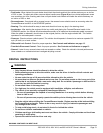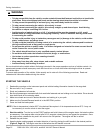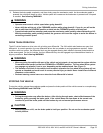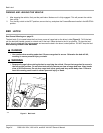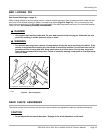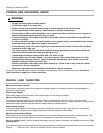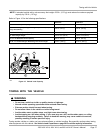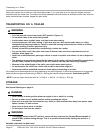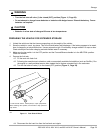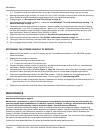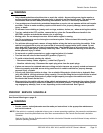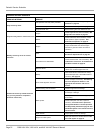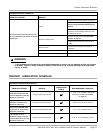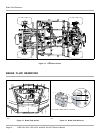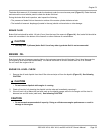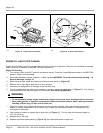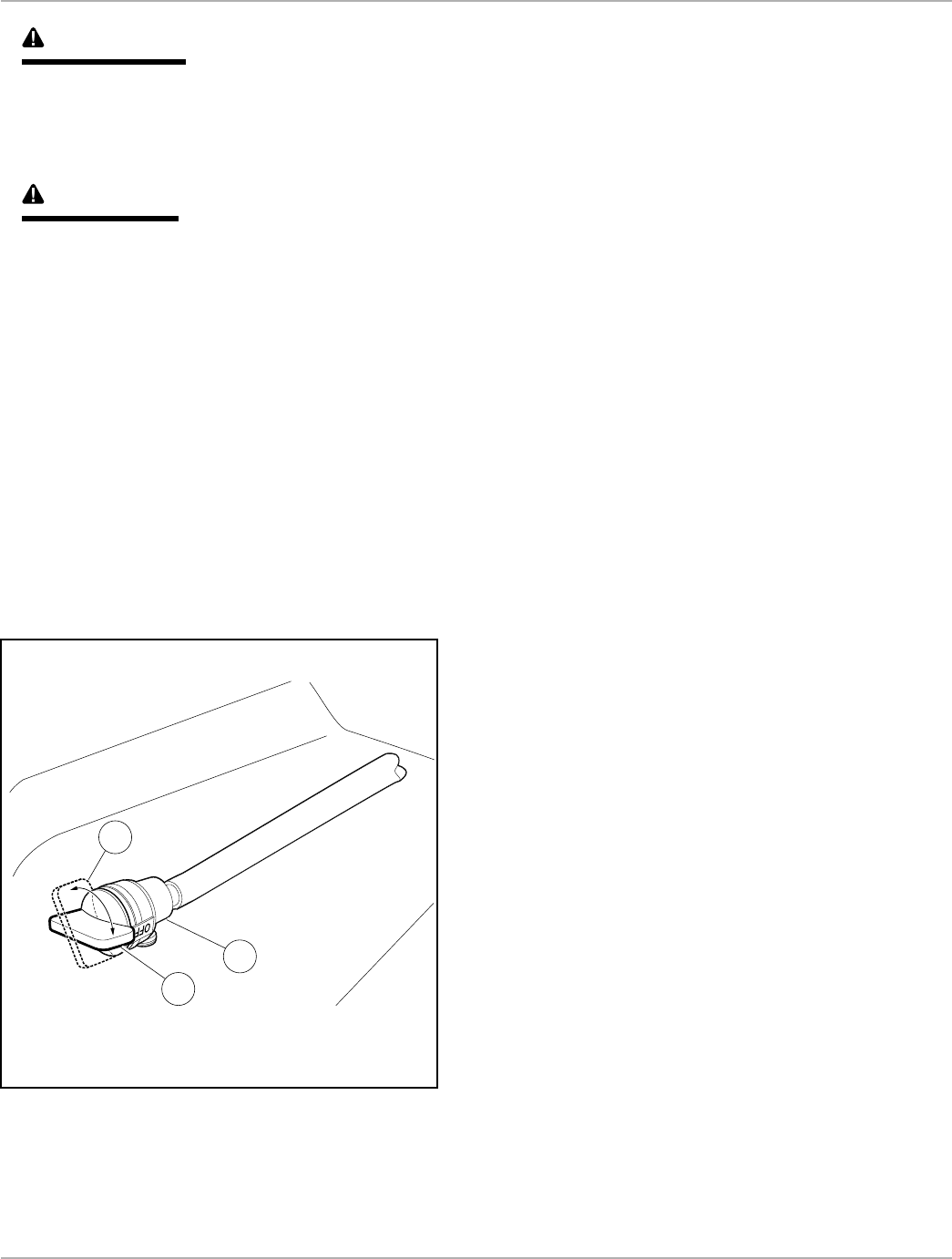
Storage
WARNING
• Turn the fuel shut-off valve (1) the closed (OFF) position (Figure 11, Page 29).
• Do not attempt to charge frozen batteries or batteries with bulged cases. Discard the battery. Frozen
batteries can explode.
CAUTION
• Batteries in a low state of charge will freeze at low temperatures.
PREPARING THE VEHICLE FOR EXTENDED STORAGE
1. Unload the vehicle so that the tires are supporting only the weight of the vehicle.
2. Store the vehicle in a cool, dry place. This will minimize battery self-discharge. If the battery appears to be weak,
have it charged by a trained technician. Use an automotive-type 12-volt battery charger rated at 10 amps or less.
Check electrolyte level after charging and add distilled water if necessary.
3. Make sure the key switch is in the OFF position and the Forward/Reverse handle is in the NEUTRAL position.
Chock the wheels.
4. Prepare the fuel tank.
4.1. Fill the tank with fresh fuel.
4.2. Following the manufacturer’s directions, add a commercially available fuel stabilizer (such as Sta-Bil
®
). Run
the engine in a well-ventilated area to allow treated fuel to replace untreated fuel in the carburetor.
4.3. Turn the fuel shut-off valve (1) to the closed (OFF) position (Figure 11, Page 29).
1
2
3
1. Fuel Shut-off Valve 2. Closed (OFF) 3. Open (ON) NOTE:
When selecting valve position, ensure that it is fully opened or
fully closed.
823
Figure 11 Fuel Shut-off Valve
4.4. Disconnect the fuel vent line from the fuel tank vent nipple.
2009 HUV 4214, HUV 4414, andHUV 4414-XP Owner’s Manual Page 29



